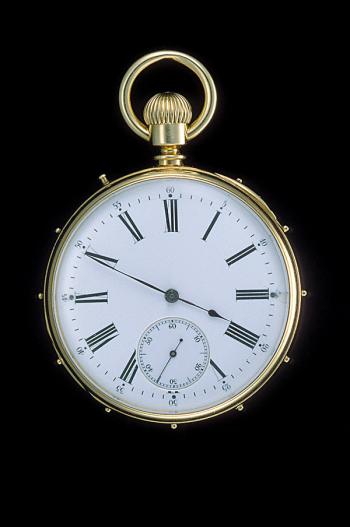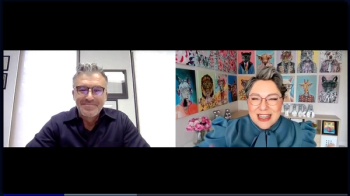
Is there a diversity controversy in optometry?
How NECO is addressing diversity among optometry students
“$440,000—whew, that’s a lot of money,” Darryl Glover, OD, says during this livestream podcast episode. “It’s got a lot of people upset and a lot of people happy.”
The money he is referring to is the newly established scholarship donation to the New England College of Optometry by Warby Parker with a goal of increasing African American representation in the field of optometry.
Optometry schools have struggled to improve diversity of enrollment over the last decade;
Dr. Glover’s guest for this conversation is Howard Purcell, OD, FAAO, president of the New England College of Optometry. He is a second-generation optometrist and practiced with his father for a decade in private practice before transitioning to a role in academics when NOVA Southeastern University opened its optometry school. He went on to become the chief of cornea and contact lenses at NOVA. The next 25 years of his career were spent working with industry to better connect with optometrists, first with Johnson & Johnson Vision and then at Essilor.
Changes at NECO
Dr. Glover and Dr. Purcell reflect on the recent success of a new initiative to drive interest from African American students to optometry. The
One of the key initiatives that Dr. Purcell has spearheaded at NECO is a focus on increasing diversity and inclusion both on campus and through outreach to potential students. Faculty member Angela B. Abraham, OD has recently been promoted at NECO as the diversity and inclusion liaison. She will work with the Alliance for the Advancement of Diversity and Inclusion, a group of faculty, students, and staff dedicated to leading on campus efforts.
NECO has also put together an external group: the Diversity and Inclusion Council, Dr. Purcell says. Leading the group is
“There are people who have been trying to do what we’re trying to do for a very long time, how do we tap in to some of that knowledge?” Dr. Purcell asks.
He says it is key to reach beyond optometry to draw from other professionals about how to improve relationships.
“It’s important to provide vehicles for feedback,” he says. “We created a hotline and an old-school anonymous information box on campus where people can leave comments and feedback about action items being taken.”
NECO’s portraits
The biggest driver of feedback (and Dr. Purcell says he has also received plenty of not-so-positive feedback about the school’s public acknowledgement of diversity) has been a change to the portraits lining the walls at NECO’s 125-year-old institution.
“All of those portraits represented white older men, and our history is so much more diverse than that,” Dr. Purcell says. “We felt it was really important to demonstrate that diversity. Let me be clear, we are not removing any of the portraits at the college. What we are doing is adding to them and showcasing the diversity of the people who have contributed.”
New faces on the walls at NECO include
“For some reason people started tying it to the statues being taken down across the country. It was extremely frustrating,” Dr. Purcell says.
Warby Parker funding
The newly established Warby Parker scholarship has similarly drawn ire.
“In order to achieve the great goals that we have all set, we need the help of the eyecare industry,” Dr. Purcell says.
The first industry group to step up for this mission for increasing diversity was Warby Parker and its cofounder Neil Blumenthal.
“Neil is incredibly philanthropic. Warby Parker works with the New York school system and the Boston school system to give away millions of glasses to those in need,” Dr. Purcell says.
He shares that the dialogue with optometry over the past few years has changed the course of Warby Parker as a company, and its has moved away from a focus on online exam technology and has established exam lanes with practicing optometrists in over 50 percent of its brick-and-mortar locations.
Dr. Purcell says that the dialogue with eyecare industry partners that are operating outside of traditional eyecare models allows them to find common ground with optometry.
In the case of the newly founded scholarship, he says that it will help NECO better recruit the best students across the nation. And for doctors concerned about any strings attached, Dr. Purcell is very clear that this is not the case.
“Warby Parker dictates nothing about how we use the money. There is no quid pro quo. There is nothing here other than them giving us some money,” he says.
Adding more partners
Warby Parker is not the only group that is interested in reaching optometry students and building relationships as possible future employers, according to Dr. Purcell.
“It is a critically important issue that people who want to hire our graduates have access. But there is inequity here,” he says.
Dr. Purcell says that all employer recruitment contact currently must occur off campus. For a larger corporate retailer, hosting a school-wide dinner event off campus is within the budget. But for a smaller private practice looking to hire one or two associate doctors, that opportunity is not financially reasonable.
Rethinking access to potential employers to make a more even playing field is something that Dr. Purcell is focused on.
He says: “We have to do a better job, but I want it to be equitable. I want our small private practices to have the same opportunity.”
What does Dr. Purcell want to see other optometrists and optometry schools work to achieve?
He says: “We have to go outside a little bit, and we have to learn from others. Let’s not just think that everything can be solved right within our own little world. Let’s be willing to go beyond and keep an open mind. And lastly, let’s talk to each other. If we don’t agree, let’s have a dialogue and at least understand where each other is coming from.”
Newsletter
Want more insights like this? Subscribe to Optometry Times and get clinical pearls and practice tips delivered straight to your inbox.




























